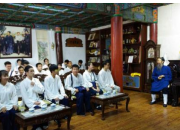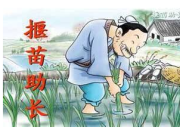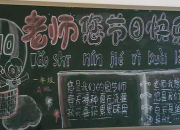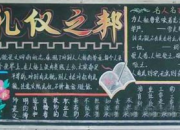-学年高一上学期期末调研测试英语试卷
时间:2021-08-312018-2019学年高一上学期期末调研测试英语试卷
一、阅读理解
Get ready to fill your days full of fun and adventure. West Dorset, an area of outstanding natural beauty, is always a place to go and there is always something going on. The following are some of the star attractions.
● Mapperton House & Gardens
Impressive valley gardens surrounded by wooded landscape.
Gardens open: Daily 11 am -5 pm except Fridays, March to October included.
Booking through Tel: (0103)959203 or www.mapperton.com
● Bridport Museum
Local history museum attracts every history lovers. We also have a year-round Local History Centre nearby where you can complete local and family history research.
Open: Monday-Saturday, April to October included.
Booking through Tel: (0103) 959711 or www.bridportmuseum.com
● Furlelgh Estate Wine Tours
Vineyard and winery, producers of the UK’s most outstanding wine. Come and see how the 20xx Winemaker of the Year makes wine.
Open for sales: 11 am-4 pm Fridays and Saturdays, tours at 2 pm.
Booking through Tel: (0103) 906323 or wwwjurleiehestate.uk
● Old Crown Court and Cells
Experience two hundred years of shocking crime and punishment. Tours of court room and cells on selected afternoons mid July to end August.
Open: Tuesday-Sunday, March to September included.
Booking through www.visitdorset.com
For all the latest information about attractions including opening times, reasonable prices and special offers,please go to www.visitdorset.com
1.Where can you learn about wine making
A. At Mapperton House & Gardens.B. At Bridport Museum.
C. At Furleigh Estate.D. At Old Crown Court and Cells.
2.Which website should you visit if you want to get a good price
A. www.mapperton.comB. www.bridportmuseum.com
C. www.furleighestate.ukD. www.visitdorset.com
3.On what day of the week can you visit all the four places
A. Monday.B. Tuesday.
C. Friday.D. Saturday.
Since many of you are planning to study at a college or university in the future, you may be carious to know what your future study will be like. This is the question I want to discuss with you today.
First, let’s talk about what your weekly timetable will look like. No matter what your major may be, you can expect to spend between four and six hours a week for each class attending lecture. Lectures are usually in very large rooms because some courses such as Introduction to Sociology or Economics often have as many as two or three hundred students, especially at large universities. In lectures, it’s very important for you to take notes on what the professor says because the information in a lecture is often different from that in your textbooks. Also, you can expect to have exam questions based on the lectures. So it isn’t enough to just read your textbooks; you have to attend lectures as well. In a typical week, you will also have a couple of hours of discussion for every class you take. The discussion part is a small group meeting usually with fewer than thirty students where you can ask questions about the lectures, the reading, and the homework. In large universities, graduate students called teaching assistants, usually direct discussion parts
If your major is chemistry, or physics, or another science, you’ll also have to spend several hours a week in the lab doing experiments. This means that science majors spend more time in the classroom than non-science majors do. On the other hand, people who major in subjects like literature or history usually have to read and write more than science majors do.
1.Which of the following is important for students to do according to the passage
A. Reading just the textbooks.B. Taking notes in lectures.
C. Spending 5 days attending lectures.D. Getting on well with classmates.
2.What is not included in a discussion part
A. Working with the help of university professors.
B. Asking questions about a lecture.
C. Talking over what the students have read.
D. Discussing the problems about homework.
3.According to the author, What’s the characteristic of science majors
A. They have to work harder than non-science majors.
B. They do more experiments than other majors.
C. They consider experiments more important than discussions.
D. They spend less time on their studies than non-science majors.
4.What is the writer’s purpose in writing the passage
A. To help students learn about university study.
B. To persuade students to attend lectures.
C. To encourage students to take part in discussions.
D. To advise students to choose proper majors.
Hundreds of children are being treated for sleep problems in Wales every year. In some cases, babies, infants and teenagers have been admitted to hospital while in north Wales alone.
The Children’s Sleep Charity said many children were suffering from lack of sleep mainly because of technology use. Public Health Wales said sleep was as important to a child’s health as healthy eating and exercise, and children with poor sleep patterns were more likely to be fat.
Statistics obtained under the Freedom of Information Act by BBC Wales found at least 408 children have been admitted to hospitals across Wales suffering from sleep disorders since March 20xx.
Children aged between 0 and4 made up the highest number of inpatients (住院病人), with some newborns being treated for sleep-related problems from the day of birth.
Vicki Dawson, who set up the Children’s Sleep Charity (CSC), said sleepless nights were putting both children and parents in anxiety. “Their weight and growth may also be affected as well as their mental health,” she said.
Teachers said children showing signs of sleep shortage and tiredness in class were a concern as they couldn’t concentrate for long periods.
Psychologist Amy McClelland, of Sleep Wales, said a common problem was children being “over excited” and “not having the chance to relax property” before bed and families should get back to basics. “Think 1950s family home. Dinner as a family, read, chat, a film maybe, lights off and then bed.” She added.
1.What’s the main reason why children are short of sleep
A. Less exercise.B. Eating habits.
C. Sleep patterns.D. Technology use.
2.Who are the majority of the inpatients with sleep-related disorders
A. Teenagers.B. Infants.











